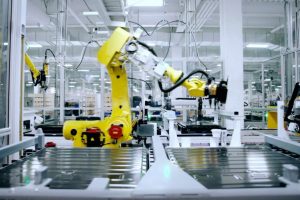- 🚗 Rivian is being sued by Bosch for not paying $204M after cancelling a motor supply contract.
- 🔄 Rivian moved to produce its own motors, cancelling a deal with Bosch due to alleged supply issues.
- 🌍 Bosch invested significantly in facilities for Rivian’s motor production, now facing financial losses.
- 🔧 Rivian is counter-suing, claiming Bosch’s motor supply failures impacted its production targets.
- 🛠️ Bosch was set to produce 200,000 motors and claims Rivian had planned to replace them with in-house motors.
- 📉 Rivian has faced production challenges, now reducing its production guidance due to parts shortages.
The flourishing electric vehicle (EV) industry is not without its challenges, as demonstrated by the ongoing legal skirmish between up-and-coming EV manufacturer Rivian and automotive supplier giant Bosch. The conflict, primarily revolving around financial non-compliance and contested cancellations, reveals deeper complexities within the supply chain and production strategies of modern EV makers—especially amidst global manufacturing disruptions.
Understanding the Rivian-Bosch Conflict
The Lawsuit at a Glance
Rivian, which had contracted Bosch to supply electric motors, is now embroiled in a lawsuit with the supplier over an unpaid $204 million following the cancellation of their agreement. Bosch asserts that Rivian reneged on a reimbursement clause covering cancellations, leading to significant financial repercussions for the supplier, which had made substantial investments to meet Rivian’s needs.
Reasons Behind the Agreement Cancellation
In an attempt to optimize and potentially cut costs, Rivian moved motor production in-house. This strategic shift followed claims of Bosch’s inadequate supply, which allegedly stifled Rivian’s production capabilities. However, Bosch counters that Rivian had already been planning to introduce its Enduro e-motor system, suggesting a covert strategy to phase out reliance on Bosch’s motors.
Financial and Operational Implications
Bosch’s Strategic Investments
To honor its contract with Rivian, Bosch dedicated considerable resources to establishing manufacturing operations both in Germany and in the United States. Bosch had anticipated producing up to 200,000 motors for Rivian annually—a venture that the cancellation abruptly halted. These investments have left Bosch grappling with stranded capital and potential revenue losses.
Rivian’s Counterclaims
Rivian has not been quiet in the face of these allegations. The automaker has retaliated with a lawsuit that accuses Bosch of failing to meet delivery demands, which, Rivian claims, led to a significant dip in production output—reportedly by 30,000 units. This counteraction underscores a defense strategy highlighting Bosch’s alleged supply shortcomings as the impetus for Rivian’s contract termination.
The Broader Impact on Rivian
Production Challenges in 2024
Despite shifting production internally, Rivian’s path has not been without hurdles. The company recently scaled back its production guidance for 2024, citing persistent parts shortages, a scenario exacerbated by global supply chain disruptions including but not limited to the much-discussed semiconductor shortage. This reduction suggests ongoing difficulties in ramping up production to meet market demand.
Supply Chain Vulnerabilities
Rivian’s decision to insource motor production wasn’t simply an opportunity to lessen dependency on third-party suppliers; it was also a reflection of the sector’s vulnerability to external disruptions, such as the semiconductor crisis. This multifaceted issue affects not just Rivian but EV manufacturers worldwide, who are consistently battling between innovative progress and real-world manufacturing constraints.
Looking Forward: Industry Implications
Adapting to an Uncertain Landscape
The Rivian-Bosch dispute is a microcosm of broader industry trends where companies increasingly seek greater control over their supply chains. However, the pursuit of vertical integration comes with inherent risks, especially if underscored by legal battles and market volatility.
Strategizing Financial and Production Management
These developments stress the need for both established players and new entrants in the EV market to develop resilient strategies. Balancing in-house production with external partnerships, while managing legal and financial liabilities, is crucial for sustainable growth.





